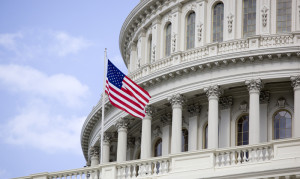Joseph Nye is right, less American ‘exemptionalism’ not more interventionism
 Joseph Nye has been warning against US “exceptionalism” turning into “exemptionalism,” which is to say few attempts by the US Congress to allow for meaningful and speedy international cooperation. He’s absolutely right. Rather than interventionism, America needs an anti-exemptionalism movement.
Joseph Nye has been warning against US “exceptionalism” turning into “exemptionalism,” which is to say few attempts by the US Congress to allow for meaningful and speedy international cooperation. He’s absolutely right. Rather than interventionism, America needs an anti-exemptionalism movement.
What does exemptionalism do? Not a lot, says Professor Nye, and there lies the problem. Exemptionalism, he suggests, foolishly limits American power because it would cost little or nothing in blood and treasure for Congress to do, say, the following:
** ratify the UN Convention on the Law of the Sea (CLS)
** help emerging markets achieve greater voting power within the International Monetary Fund
*** set limits on carbon emissions in the run-up to the UN Climate Change Conference in Paris
Each of the three examples above would give US foreign policy more force, penetration and moral pelf. Besides, they would be in American interests. How?
** Ratification of the CLS would help the US on the competing territorial claims in the South China Sea and China’s construction of new ‘islands’
** Helping poorer countries into more visible positions helps with goodwill and brownie points. Had the US done so a good six months ago, China may have had less success (and publicity) when it launched its Asian Infrastructure Investment Bank
** America’s moral authority has been greatly eroded in the past 25 years and it needs every way it can to prove that it is an admirable force for good. Setting carbon emissions targets is an act of good world citizenship
Professor Nye acknowledges that it is always hard to judge “how much to spend on foreign affairs and how to intervene in distant crises”. That said, the US cannot manifestly “maintain global leadership if other countries see Congress constantly blocking international cooperation.” But that debate, as he says, has yet to begin.

